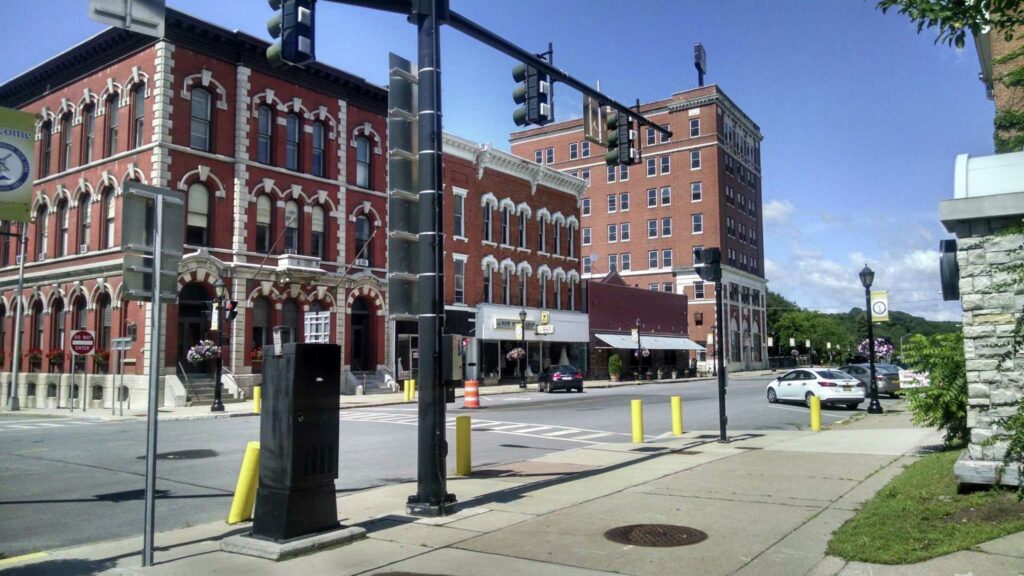AMSTERDAM — A state Supreme Court justice has upheld a jury verdict that awarded more than $191,000 to a wastewater treatment worker who was fired by the city of Amsterdam four years ago after testing positive for cannabis that had been prescribed to him for chronic back pain.
The city of Amsterdam had waged a fierce post-verdict legal battle seeking to overturn or reduce the jury’s verdict. But the decision issued by state Supreme Court Justice Rebecca A. Slezak also ordered the city to reinstate Thomas Apholz to his wastewater treatment job as well as pay an additional $149,107 for his legal fees, including “any other amount of attorney fees that the court may deem reasonable after (Apholz’s) counsel submits on an affidavit.”
The outcome stands as the first trial verdict in New York in which an employer was found to have violated state Human Rights Law that deems someone with a medical marijuana prescription as having a disability and makes them part of a protected class. The Compassionate Care Act allowing medical prescriptions of marijuana was signed into law in July 2014 and took effect January 2016. Marijuana was legalized for recreational use in 2021.
The city’s legal team had sought to scuttle the jury’s verdict and legal proceedings on multiple fronts, including whether Apholz, 44, had disclosed all of his outside income after being fired. The judge found that roughly $200 in tips that Apholz was paid while bartending as a volunteer at a private Catholic club between 2020 and last year did not amount to fraud.
Apholz, 44, was fired by Mayor Michael Cinquanti after he tested positive for marijuana in February 2020 during a random drug screening. Apholz was fired under the provisions of a “last chance agreement” that had been provided to him by the city when he also tested positive for marijuana in 2017. The agreement had noted that any additional violations of the city’s drug policies could result in his immediate termination.
But a year before his second positive test, Apholz had been prescribed marijuana for the treatment of back pain. That prescription was in effect at the time he tested positive. According to court records, Apholz notified city officials that he was a certified patient in the state Medical Marijuana Program and had a valid Department of Health certification for a medical marijuana prescription.
“The city’s decisions have already cost and will continue to cost taxpayers substantial and often unnecessary amounts of money,” said Kevin A. Luibrand, Apholz’s attorney. “What business is it for the city to say what medicine a doctor can prescribe for an employee off duty? The city should get out of Mr. Apholz’s private doctor-patient decisions and let him just do the job at which he excelled.”
The jury’s verdict last year had left open the option for Apholz to file for reinstatement to his job as well as to seek compensation for his legal fees — both outcomes he won.
The Compassionate Care Act recognized what lawmakers said were positive medical benefits of marijuana components and initially authorized certain doctors to prescribe its use for serious medical conditions. The law has since been adjusted to allow doctors to prescribe marijuana for any reason, including anxiety and insomnia.
Luibrand said that Apholz took the marijuana prescription in capsule form on non-workdays. He never used it at work and only “in the evening at home when his pain was at its worst.” He said the jury found that city officials had refused to provide him an accommodation for his medical condition even after he informed them of his valid medical marijuana prescription.
Two years ago, the state Office of Cannabis Management launched a medical cannabis certification system that expanded patient access to the plant by leaving its uses up to health care practitioners.
But the use of marijuana to treat medical conditions has not been without its critics. A coalition of anti-cannabis interests filed a lawsuit last year in state Supreme Court in Albany seeking to overturn New York’s legalization of marijuana, comparing the industry to tobacco companies that made fraudulent claims about their products.
The groups cited information they contend shows that marijuana consumption is harmful and that claims made about its medicinal benefits are unfounded and dangerous.
“False advertising may mislead vulnerable patients and the public,” the complaint states. “’Medical’ use may inadvertently result in addiction, increased risk of psychosis, mental or psychosocial impairment, lung damage when smoked, and complications for unborn children when used during pregnancy. The presence of ‘medical marijuana’ dispensaries may increase access to recreational marijuana for minors.”
Marijuana remains a schedule 1 controlled substance under federal law, a list that includes bath salts, heroin, ecstasy and acid. The Food and Drug Administration also promulgates rules that note marijuana has a high potential for abuse and that its use as a dietary supplement has not been approved. Many of the products being sold in retail and medical marijuana outlets in New York and other states are edibles that contain THC and CBD.
The lawsuit also cites information it says indicates the claims about the medical benefits of THC and CBD have not been subjected to studies that satisfy the FDA’s standards for determining safety and effectiveness.
H/T: www.timesunion.com



